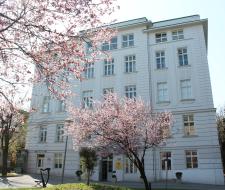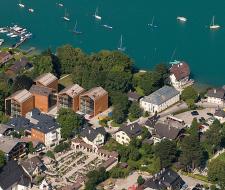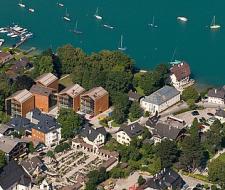Top secondary schools in Austria for international students - 3 yo
This content was developed and approved with active participation of Chris Skidmore.
In the process of preparing the material, we referenced the following sources:
- https://en.wikipedia.org/wiki/Education_in_Austria
- https://www.austria.org/education.
-
 IB World School with an integrated Music and Arts Academy
IB World School with an integrated Music and Arts Academy AustriaViennaCurrently watching: 6
AustriaViennaCurrently watching: 6 -
 Middle States Association of Colleges and Schools accreditation
Middle States Association of Colleges and Schools accreditation AustriaSalzburgCurrently watching: 10
AustriaSalzburgCurrently watching: 10 -

 AustriaViennaCurrently watching: 6
AustriaViennaCurrently watching: 6 -

-

 AustriaViennaCurrently watching: 1
AustriaViennaCurrently watching: 1 -

-
 in 2018 an average IBDP score was 33
in 2018 an average IBDP score was 33 AustriaSt. GilgenCurrently watching: 4
AustriaSt. GilgenCurrently watching: 4 -

Today, living standards in Austria are considered to be one of the highest in Europe. Rankings of top secondary schools and universities in Europe traditionally include Austrian educational institutions, due to the highest quality of secondary and higher education.
The main architectural beauties of the country are concentrated in the "musical capital" of Europe - Vienna. Cathedral of St. Stefana attracts many tourists to the city, who dream to see medieval buildings, castles, palaces and fortresses of the ancient central European city. Thermal springs, Styrian cathedrals, small picturesque villages and magnificent lakes of Carinthia beckon and fascinate travelers.
SMAPSE offers more than 10 best secondary schools in Austria where international students can get high-quality secondary education.
Secondary education in Austria in the modern world annually attracts tens of thousands of foreign students, learning German, which is no wonder, because studying in the best schools in Austria after 5, 6, 7, 8, 9, 10 grades allows foreign students to receive a prestigious certificate of full secondary education of the European standard. Such certificate is highly valued in case of enrolment in the universities in Austria and other countries in the world. In this article you can find school list, ranking, tuition fee, this information will help you to start to choose top high schools in Austria for your child right now! Leave a request for a free consultation right on this page – our experienced experts will contact you to provide additional information at any time convenient for you.
Alternative destinations
Advantages to Study in the Best Secondary Schools in Austria
When considering secondary schools in Austria, it's evident that these institutions continually rank among the top schools globally. Leading analytical agencies consistently place schools in Austria in top positions for the quality of education they offer and the opportunities they provide for hands-on experience in chosen fields.
Interestingly, the programs tailored for international students in Austria are priced considerably lower than similar offerings in Germany and Switzerland. Additionally, Austria boasts cultural activities and affordable housing, making it an attractive destination for students from all economic backgrounds.
Furthermore, the country offers summer German courses, preparatory courses for university admissions, and high-level university education, all of which are recognized and esteemed by the world's most prestigious educational institutions.

List of Advantages in the Austrian Educational System:
-
Affordability and Excellence: Courses, both academic and language-focused, are cost-effective while maintaining top-tier quality.
-
Global Recognition: The curriculum in Austrian middle schools and other educational institutions aligns with world standards. Diplomas from private institutions in Austria are acknowledged and revered by elite universities and sought-after employers globally.
-
Inclusive Education: One of the standout features of schools in Austria is the opportunity for individuals to pursue education at any age.
-
Tailored for Internationals: Austria offers language programs starting from the basics and adaptation courses specially designed for foreign students.
-
Cultural Exploration: Students have access to a plethora of cultural and educational programs, allowing them to immerse themselves in Austria's rich heritage.
-
Cost-effective Living: The cost of living, including food expenses in Austria, is relatively low, adding to the appeal for international students.
-
Diverse Summer Programs: A wide array of summer courses is available catering to children, teens, and adults alike.
When examining schools in Austria ranking, it becomes clear why so many students are drawn to the nation for their educational pursuits. Whether you're seeking secondary schools, middle schools, or are keen on finding the best schools in Austria, the country offers an unparalleled educational experience.


What does make Austrian schools special for parents and children from all over the world?
Austria has a lot to offer international students: we are visited by those who are simultaneously interested in obtaining a quality education of the world level and cultural experience. Austria is a small country, but widely known for its history and contribution to art, culture, music, literature. It is traditionally a desirable country for winter sports - skiing and snowboarding. Since 1945, Australia has been a neutral country, the headquarters of the UN and OPEC are located in Vienna, it serves as a place for peace negotiations, diplomatic meetings, and the signing of disarmament agreements. Socially and politically it is a very stable country with a strong and reliable system of social democratic support. Austria is hospitable and diverse, becoming home to people from all over the world: cities are small, you quickly settle in them, nature is incredibly beautiful, and the level of security is amazing.
By the way, Austrian schools also offer excellent environmental education for their students! It is a stimulating, supportive experience every day.
Secondary Education for International Students in Austria
For foreign students looking to delve into a rigorous educational environment, secondary schools in Austria offer an impeccable choice. Not only do these schools provide education in both German and English (akin to the school education in the USA), but students also have the opportunity to attain an IB diploma or High school diploma. The high educational standard in Austria is primarily upheld by its private schools and boarding facilities, where individual attention is given to both academics and personal development. Acquiring education from these esteemed institutions is a badge of honor, significantly boosting one's prospects of securing admission in renowned global higher education institutions.
Type of Secondary Schools in Austria for International Students
Austria's education system is inclusive, welcoming students to its secondary education after completion of grades 5 through 10. Public schools begin to enroll children from the age of 10. One defining feature of the Austrian educational landscape is its structured duration: students are mandated to undergo nine years of combined primary and secondary education.
The secondary education journey in Austria unfolds in two phases:
-
General Secondary School (Hauptschule): This institution, in its initial four-year stretch, takes in students transitioning from primary schools. Distinctively, specialization begins early here. Rather than waiting for high school, students are streamed based on profiles such as languages, mathematics, humanities, and more. Additionally, Austria offers secondary schools that emphasize sports or the arts.
-
New High School (Neue Mittelschule): Serving as the state's experimental venture, these schools are selectively located in certain Austrian cities. Their curriculum deviates from the standard, focusing on a deeper understanding of disciplines.
-
Advanced General Secondary Schools (Allgemeinbildende höhere Schulen): These are premier institutions prioritizing a profound study approach, especially for foreign students, and pre-university preparation. Their reputation stands taller than general secondary schools, and as a result, their admission criteria are notably stringent, often seeking students with distinguished primary school achievements.
-
Gymnasium: This type of institution divides students into three streams—exact sciences (like physics, mathematics, chemistry), humanities (like foreign languages, sociology), and economic sciences (like microeconomics, macroeconomics, business basics).
Both public and private institutions operate in Austria. The private-to-public secondary school ratio stands at 1:10. Intriguingly, many private schools operate under the auspices of the Catholic Church. However, discipline in these "Catholic" schools is more rigorous. International students have the freedom to choose between religion and ethics, without any imposition of religious adherence.
Study in the Best Schools Secondary in Austria: Overview for International Students
Specialization in Austrian secondary schools kicks off in the 7th and 8th grades. To aid students in making informed choices, they engage in courses that include company and factory visits, offering glimpses into various professions and hands-on practical training. By the ninth grade, students have a clearer vision regarding their academic and professional aspirations.
Post the eighth grade, a whopping 80% of students opt for polytechnic colleges or schools (Polytechnische Schule) to pursue secondary vocational education. Their final year includes on-site experiences in factories and companies, solidifying their career decisions. Secondary vocational education in Austria encompasses:
-
Direct Practical Engagement: Students work as interns in companies, with academic pursuits unfolding post-working hours. The curriculum spans 2-4 years.
-
Professional Technical Schools: Post graduation, students can immediately venture into their chosen professions. Programs here last between 3-4 years, including compulsory paid internships during summers.
-
Medical Colleges: These are generally less accessible for international students arriving post their 5th-10th grades.
-
Specialized Professional Colleges: These colleges offer avenues in economics or technical fields. A five-year commitment culminates in a final exam, post which successful students receive a certificate of full secondary vocational education.
The remaining 20% of students persist with general secondary education in Austria, exploring a myriad of subjects, including specialized ones, over the subsequent four years. By the twelfth grade, they further narrow down their focus on areas such as economics, natural sciences, or the humanities.
Upon concluding the twelfth grade, students undertake a final examination. Successful candidates are awarded the Matura certificate. This revered document paves the way for them to pursue higher education not just in Austria, but worldwide.
What is the structure of secondary education in Austria?
In Austria, secondary education consists of two main stages: compulsory secondary education (Pflichtschule) and post-secondary education (Schulische Ausbildung). Compulsory secondary education begins at age 6 and lasts 9 years. After completing compulsory school, students can choose different educational paths, such as higher education or vocational education.
What school subjects are studied in Austrian secondary schools?
In compulsory secondary school, students are taught the basics of mathematics, German, English, history, geography, biology, art, music and physical education. In post-secondary educational institutions, subjects depend on the chosen specialization.
What are the opportunities for career guidance at school in Austria?
Schools in Austria provide a variety of career guidance programs. Students are provided with information about various careers, given tests to identify interests and abilities, and assisted in choosing further education and careers.
What types of post-secondary education are available in Austria?
There are several types of post-secondary education in Austria, including general secondary education (Allgemeinbildende höhere Schulen) and vocational education (Berufsbildende höhere Schulen). Each type prepares students for different career fields and also provides the opportunity to earn a high school diploma.
Are there programs for students with special needs in Austria?
Yes, there are specialized programs and schools for students with special needs in Austria. These are schools for children with disabilities and programs to integrate such children into regular classes, if necessary.
What are the opportunities for participation in extracurricular activities in Austria?
Extracurricular activities are widely developed in Austria. Pupils can participate in sporting events, bands, art exhibitions and clubs. This promotes the diverse development and social integration of students.
Can foreign students study in Austrian secondary schools?
Yes, international students can study in Austrian secondary schools. They must comply with admission rules, which may include language requirements and the need to provide proof of previous education.
What alternative education pathways are available in Austria besides traditional schools?
In addition to traditional schools, Austria has a home education system (Hausunterricht) and various educational programs for adults. There is also the possibility of obtaining education in various vocational schools and courses.
What are the requirements for entering university after high school in Austria?
Entry to university in Austria after high school usually requires successful completion of the Matura program. In addition, depending on the chosen specialty, additional entrance exams or tests may be required.
What difficulties may foreign students encounter in Austrian schools?
International students, especially those who have just started learning German, may have difficulty with the language barrier and adapting to a new culture and way of life. However, Austrian schools and society in general generally provide support and help international students successfully adapt and study in Austria.
Learning programs-summary information
| Name | Meaning | Equivalent | Min. age | Duration, years |
Next stage | Cost |
|---|---|---|---|---|---|---|
| GCSE | General certificate of secondary education | secondary education (non-accomplished) | 14 | 1–2 | A-Levels | 15,000 USD+ |
| A-Levels | Advanced level | secondary education (accomplished) | 16 | 2 | University | 15,000 USD+ |
| BTEC | Business and Technology Education Board | secondary special education | 14 | 2–3 | University/ work | 15,000 USD+ |
| Oxbridge Preparation | Preparing for Oxford and Cambridge | secondary education (accomplished) | 17 | 1 | University | 15,000 USD+ |
| International Baccalaureate | International baccalaureate | secondary education (accomplished) | 16 | 2 | University | 18,000 USD+ |
| Foundation/ Pathway Year | Preparatory year | admission to the 1st year of university | 17 | 1 | University | 14,000 USD+ |
| NCUK | The Northern consortium | 2 year university | 17,5 | 1 | 2 year University of NCUK | 13,000 USD+ |
| Special Preparation (Medics/Math/Business) | Specialized training | - | 14 | optional | optional | 4,000 USD+ |
| Academic English | Academic English | Language school | 8 + | 6–12 months | School or University | 8,000 USD+ |
Advantages and disadvantages of English schools
| Advantages | Disadvantages |
|---|---|
| The opportunity to enter the best universities in England, USA, Canada, Switzerland, Europe, the world | Expensive |
| High quality of education and academic standards | Strong workload |
| Perfect English after graduation | The need to change the social environment; it takes time to adapt |
| Useful contacts | The difficulty of choosing the most suitable school for the child, requires a qualified specialist |
Top 21 boarding colleges in England 2026
| 1 | Cardiff Sixth Form College |
| 2 | National Mathematics and Science College |
| 3 | Abbey College Cambridge |
| 4 | d'Overbroeck's College |
| 5 | MPW London |
| 6 | CATS Cambridge |
| 7 | Kensington Park |
| 8 | DLD London |
| 9 | King's College St Michael’s |
| 10 | Bellerbys Cambridge |
| 11 | Chelsea Independent College |
| 12 | MPW Cambridge |
| 13 | Bellerbys Brighton |
| 14 | CATS London |
| 15 | St Clare's Oxford |
| 16 | Bishopstrow College |
| 17 | CATS Canterbury |
| 18 | Bellerbys London |
| 19 | Ealing Independent College |
| 20 | Cambridge Tutors College |
| 21 | Abbey Manchester |
Literature and references
-
A Guide to Education & International Schools in Austria
-
The education system in Austria
-
Ten things you will notice as a parent with a child at school in Austria
-
Education in Austria — Wiki
-
Education and schools in Austria
-
Academic grading in Austria — Wiki
-
Educational systems in Austria
-
Education in Austria
-
Secondary education in Austria

